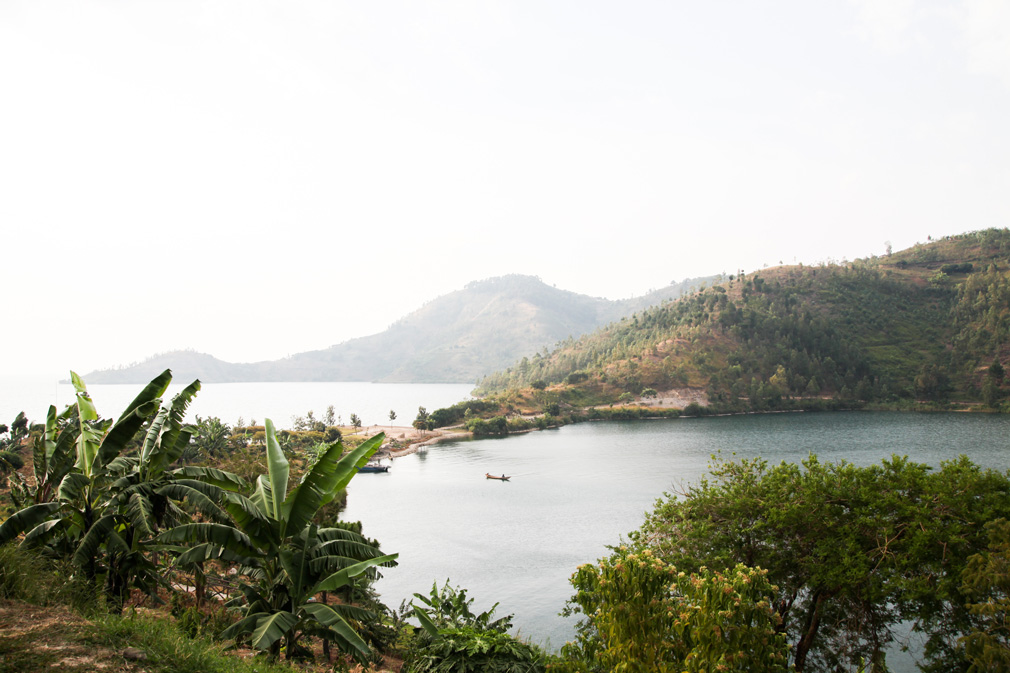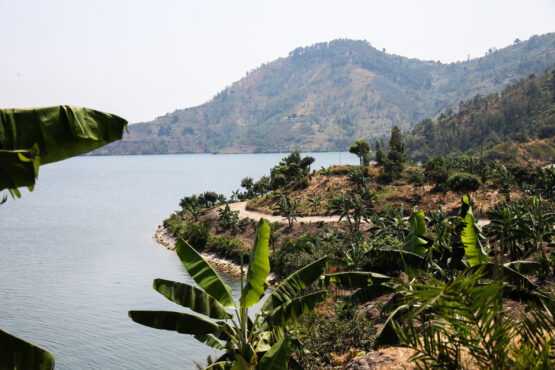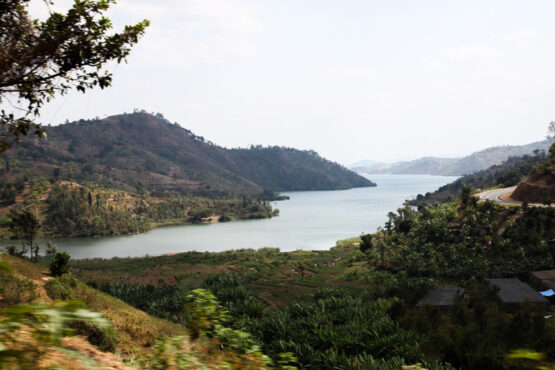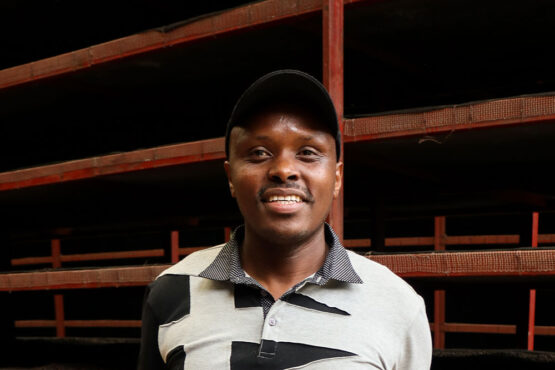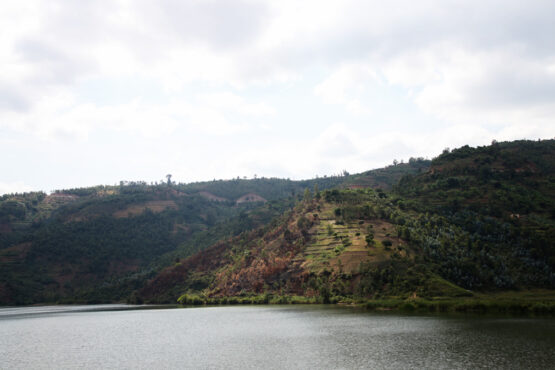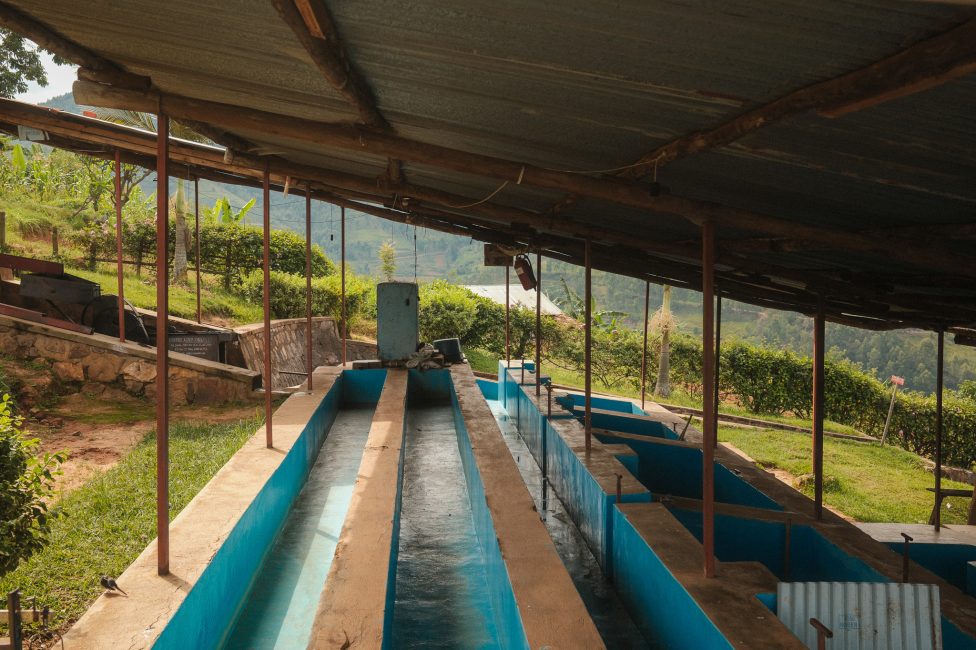Lake Kivu Cyato
Bright and distinct, with lifted green apple acidity and a juicy mouthfeel. Strawberry jam, apricot and butterscotch sweetness.
We are very excited to share this 100% Red Bourbon lot with you from the breathtaking and promising Nyamasheke District, which is located by Lake Kivu in the Western Province of Rwanda. The lot was produced by smallholder producers who farm coffee in the area surrounding Cyato washing station, which was established in 2017 and is one of three washing stations owned and operated by Tropic Coffee Company. Day to day operations at Cyato are overseen by the station manager, Jean Pierre Hakizimana, who ensures that the coffees are harvested and processed with meticulous care.
Cyato sits at 1,930m above sea level, overlooking the beautiful landscape of this unique coffee-growing region. The farms that supply cherry to Cyato washing station are very small – averaging just a quarter of a hectare – and situated at staggeringly high elevations up to 2,200m above sea level. Coffee is grown as a cash crop, alongside subsistence food crops like maize, beans and sorghum and some livestock like goats and chickens.
The coffees that make up this lot were grown alongside the beautiful Lake Kivu, a fresh-water lake situated at 1,460m above sea level. The lake is responsible for the nutrient-rich, silty and sandy soil of the surrounding area, and contributes to the region’s steady climate, with year-round temperatures sitting between 22°C-25°C. This consistent climate is ideal for the slow ripening of coffee cherries, leading to denser beans and a sweeter, more complex cup profile.
The region is also home to Nyungwe Forest, which is one of the oldest rainforests in Central Africa and home to a rich biodiversity of native flora and fauna. Coffee farmers in the area avoid using synthetic fertilisers or pesticides, instead allowing native honeybees from Nyungwe to pollinate the coffee trees. This interaction between bees and coffee is very beneficial for the propagation of the plant and results in an increased yield (by up to 60%), more uniformity between cherries, and a unique, distinctive character in the cup profile.
Head here to learn more about the work of Tropic Coffee in Rwanda.
HOW COFFEE IS PROCESSED AT CYATO WASHING STATION
- The ripe cherries are picked by hand and then delivered to the washing station either on foot, by bike, or by trucks that collect cherries from various pick-up points in the area.
- Before being pulped, the cherries are deposited into flotation tanks, where a net is used to skim off the floaters (less dense, lower grade cherries). That same day, heavier cherries go through a mechanical pulper that removes the skin, pulp, and 70% of the mucilage and divides the beans into three grades by weight.
- The beans (in parchment and with some remaining mucilage) are then dry-fermented (in a tank with no added water) overnight for 8–12 hours. They are then sorted again using grading channels; water is sent through the channels and the lighter (i.e. lower grade) beans are washed to the bottom, while the heavier cherries remain at the top of the channel.
- The wet parchment is then soaked in water for around 24 hours, before being moved to pre-drying beds where they are intensively sorted for around six hours. This step is always done while the beans are still damp because the green (unripe) beans are easier to see. It is also always done in the shade to protect the beans from direct sunlight (which they have found helps to keep the parchment intact and therefore protects the bean better).
- The sorted beans are finally moved onto raised African drying beds in the direct sun to dry slowly over 10–14 days. During this time the coffee is sorted carefully for defects and turned regularly to ensure the coffee dries evenly. It is also covered in the middle of the day when the sun is at its hottest.
WHY WE LOVE IT
Historically, coffees from Rwanda’s Western Province have been quite difficult to access, despite their incredible potential for exceptional quality. We have been able to source these coffees thanks to Buf’s relationship with Tropic Coffee. Coffees from Lake Kivu are known for their excellent character and unique cup profile and we think this lot is an excellent example of this!
